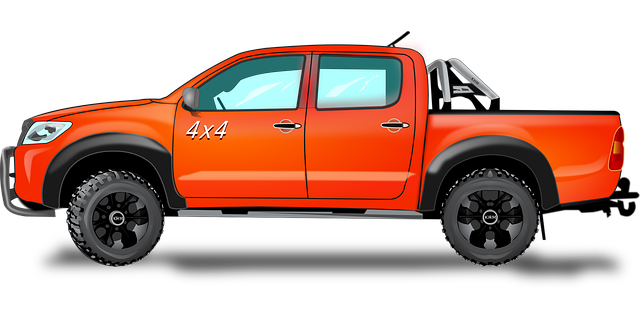For startup truckers, navigating SR22 policy requirements is essential for legal compliance in many states. These Commercial General Liability Insurance policies protect businesses from accident-related liabilities. Understanding state-specific regulations, gathering necessary documents, and accurately completing the SR22 form are critical steps. Reputable insurance providers guide startups through this process, offering tailored solutions to meet unique trucking operations' needs while avoiding penalties and making informed risk management decisions.
Navigating the complex web of insurance requirements can be a daunting task, especially for new trucking businesses. Understanding SR22 policies is crucial for truckers, as these state-specific filings ensure compliance with liability standards. This comprehensive guide breaks down the intricacies of SR22 requirements across different states, offering a step-by-step process for filing. With key considerations tailored for startup trucking ventures, it serves as a valuable resource to streamline your journey towards meeting insurance obligations and thriving in the trucking industry.
Understanding SR22 Policies for Truckers

For startup truckers, understanding SR22 policies is crucial for navigating the insurance landscape. SR22, or Commercial General Liability Insurance, is a specific type of coverage required by law in many states for commercial vehicles. Unlike personal vehicle insurance, SR22 policies are designed to protect businesses and their assets from potential liabilities arising from accidents involving their trucks. This includes covering medical expenses, property damage, and legal fees, ensuring that both the trucker and their company remain protected.
These policies are state-specific, meaning requirements vary from one state to another. Startup trucking companies must familiarize themselves with the SR22 filing process in their respective states. This involves providing detailed information about the business, vehicles, drivers, and insurance coverage levels. It’s essential to work with reputable insurance providers who can guide through this process, ensuring compliance and offering tailored solutions that meet both legal obligations and specific trucking operations’ unique needs.
State-Specific Requirements: A Quick Overview

When it comes to navigating state-specific requirements for SR22 policies in startup trucking, every jurisdiction has its unique set of rules and regulations. These vary widely depending on factors like local laws, insurance regulations, and specific industry standards. For instance, some states might have stricter criteria regarding minimum coverage amounts or additional endorsements needed for commercial vehicles. Others may offer exemptions or special considerations for new businesses under certain conditions.
Understanding these nuances is crucial for truckers looking to comply with regulations and secure the best insurance options. The process involves thoroughly researching the specific requirements of each state where your trucking business operates, ensuring you have the appropriate SR22 policies in place. This proactive approach not only helps avoid costly penalties but also enables you to make informed decisions about risk management tailored to the dynamics of the startup trucking industry.
Navigating the Filing Process Step-by-Step

Navigating the Filing Process Step-by-Step
For startup truckers, understanding the SR22 filing requirements is essential for ensuring compliance and avoiding potential delays or penalties. The process begins with gathering all necessary documents, including your driver’s license, vehicle registration, proof of insurance, and any relevant business permits. Once these are in order, you’ll need to identify the specific state(s) where you’ll be operating your trucking business. Each state has its own regulations, so it’s crucial to research and understand the requirements unique to those areas.
Next, obtain an SR22 form from the appropriate regulatory authority or insurance provider. Fill out the form accurately, providing detailed information about your trucking operation, vehicles, and insurance coverage. Double-check for any errors before submitting. After filing, keep a copy of the SR22 form and all related documents for future reference and to demonstrate compliance during inspections or audits.
Key Considerations for Startup Trucking Businesses

Starting a trucking business requires meticulous planning, especially when it comes to navigating the complex web of insurance requirements. One crucial aspect for new truckers is understanding the need for SR22 policies, which are specific to commercial vehicles. These policies ensure that truck owners meet the minimum financial responsibility standards set by states, covering potential liabilities arising from accidents or damage.
For startup trucking businesses, several key considerations come into play. First and foremost, identifying the state-specific regulations is essential. Each US state has its own set of rules for SR22 filings, including varying limits and requirements. Understanding these nuances will help business owners secure the right coverage and avoid potential legal issues. Additionally, consulting with insurance brokers or experts in trucking insurance can provide valuable insights into the best practices for acquiring SR22 policies tailored to their needs.
When embarking on your journey as a startup trucking business, understanding and navigating state-specific SR22 filing requirements is crucial. This article has provided a comprehensive guide, from grasping the essence of SR22 policies for truckers to delving into the step-by-step filing process. By familiarizing yourself with each state’s unique demands, you can ensure compliance and avoid potential hurdles. Remember, staying informed about these regulations is key to a successful startup, enabling you to focus on what truly matters – hitting the road and fostering your trucking enterprise.
